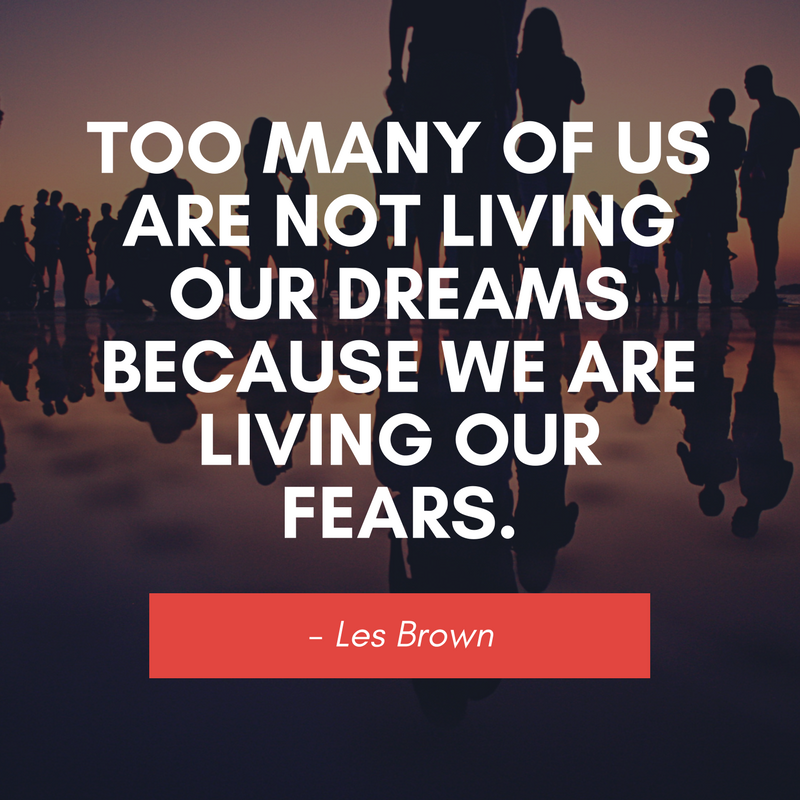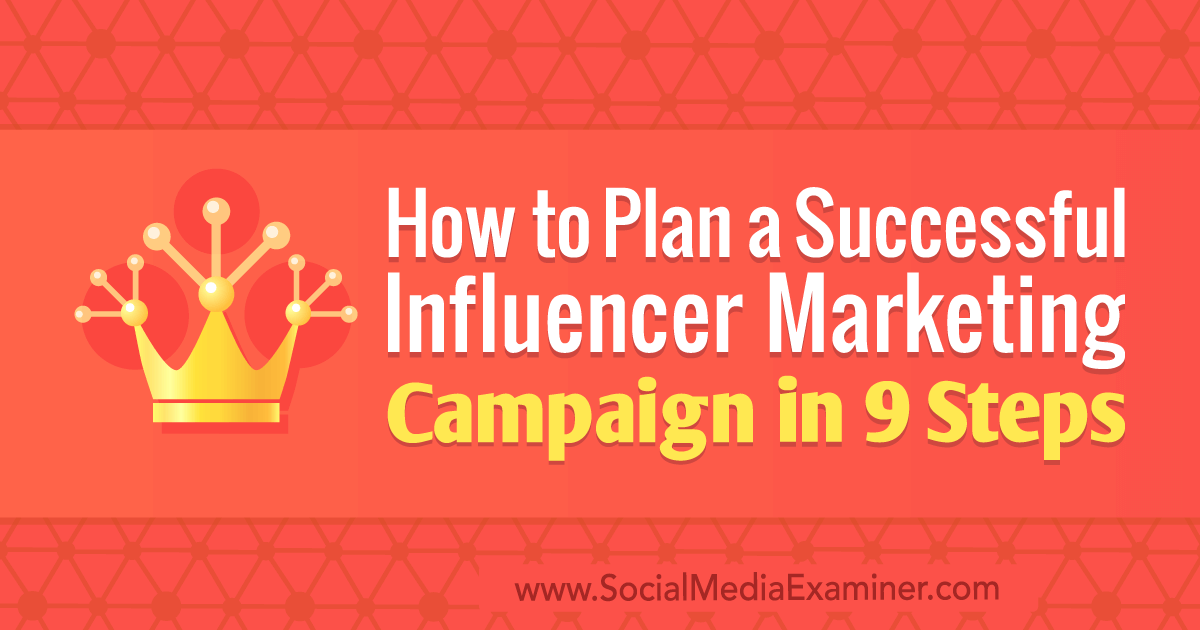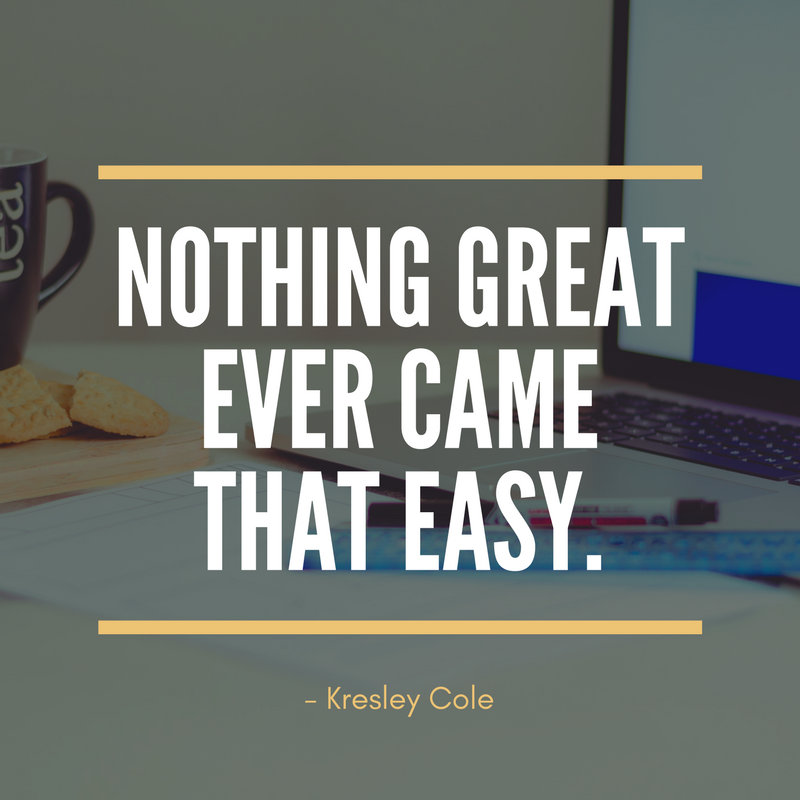
-


PHONE SYSTEMS
World class phone systems to help increase productivity.
-


FIXED LINES
Large portfolio of services to help manage your spend.
-


MOBILE
Comprehensive mobile phone solutions to assist with your flexibility.
-


DATA
Data and broadband solutions to improve your flow of information.
-


COMMUNITY
We're adding value by giving back to your community.
Wednesday, 31 July 2019
Adodo Consultancy Services Limited

Adodo Consultancy Services Limited


Doing your due diligence before buying a company will earn you bargaining powerand help you avoid unforeseen problems. Here's what you need to know.
March 1, 2019 5 min read
Opinions expressed by Entrepreneur contributors are their own.
Andrew Cagnetta bought his first business -- a pasta shop in Wethersfield, Conn. -- at age 25 and quickly realized he hadn't done his homework thoroughly enough. Although he stuck to the shop's original recipes and products, customers began complaining that the recipes had changed. Sales declined, and in less than two years, Cagnetta and his cousin, the co-owner, ended up selling the store.
They had bought the shop from two elderly women who had run it for years, not realizing how integral the previous owners had been to its success. "One question I should have asked [the previous owners] was what do they think drove people to the store?" Cagnetta says.
He would never make that mistake again. 22 years later, he now owns Transworld Business Advisors in Fort Lauderdale, Fla., which helps buyers ask the right questions before buying a business. "There are no stupid questions," Cagnetta says. "The more questions you ask, the less risk there will be."
Where to begin? Here are 10 key questions to ask sellers before agreeing to buy their business.
Tuesday, 30 July 2019
Adodo Consultancy Services Limited

"Real difficulties can be overcome; it is only the imaginary ones that are unconquerable." - Theodore N. Vail
Monday, 29 July 2019
Adodo Consultancy Services Limited

"Let this Monday be kind to you: be happy with what you have and accept the things which you cannot change."
Sunday, 28 July 2019
Adodo Consultancy Services Limited

LinkedIn is the most popular B2B social platform and, when used well, can effectively drive traffic to your website and most importantly, increase brand awareness. Despite this fact, many LinkedIn users are unaware all it is capable of doing and how it can significantly help with the overall business success. Here are 20 LinkedIn tips specially designed to boost engagement. https://bit.ly/2FeTLVc
Adodo Consultancy Services Limited


'The rich are different from you and me,' F. Scott Fitzgerald famously said. Apparently they're different from one another, as well.
March 1, 2019 5 min read
Opinions expressed by Entrepreneur contributors are their own.
To the average person, "millionaire" and "billionaire" sound similar; they're both people with money, right? And, indeed, both have access to far more wealth than the average citizen, and neither may have to worry about money ever again.
Related: 6 Money Tips From Self-Made Billionaires
Furthermore, because entrepreneurship is often the route to wealth accumulation, both may have earned their way to riches the same way. Yet while their monikers "millionaire" and "billionaire" sound the same, there are in fact significant differences between the two.
For starters, the difference between a million versus a billion dollars is immense. To put it in context, consider that one million seconds amount to 11.5 days, while one billion total 31.5 years!. A billionaire could give his or her wealth away and make 1,000 new millionaires overnight.
Further, there are 2,200 billionaires on the planet, according to a CNBC report; and while some of these wealthy elite gained their status from a family inheritance, many of the top-ranked billionaires are entirely self-made through entrepreneurial endeavors. So, what separates these hyper-successful entrepreneurs from millionaires, who are also considered successful?
The billionaire factors
These are some of the most important factors distinguishing billionaires from millionaires:
1. Goals and commitment
First, it's important to consider the billionaire’s goals and commitments. Very few people become one accidentally; instead, billionaires tend to relentlessly pursue wealth, and refuse to compromise to achieve it. Consider the entrepreneur who grows an innovative tech startup for a few years, then gets an acquisition offer from a major tech company for, say, $15 million.
This isn’t exactly rare; Alphabet makes a dozen or more such acquisitions every year. A “typical” entrepreneur might cash out and take the $15 million as a personal victory (and early retirement). A billionaire, however, setting his or her sights higher or living out a commitment to the business's core idea, might reject the $15 million in hopes of obtaining something better, or growing the business further.
Related: Billionaires Like Warren Buffett, Jeff Bezos and Mark Cuban Live by Ancient Stoic Philosophy
Though these rejections don’t always pan out, you can’t become a billionaire by settling to be (just) a millionaire.
2. Scale
What should also be considered is the scale on which billionaires operate. If we consider profit as a product of both efficiency and impact, then the more locations your business reaches, the more money you’re going to make. Owning a chain of restaurants in one state might make you a millionaire, but you’ll need to change the world on an international scale if you want to be a billionaire.
3. Repetition
Billionaires rarely make their riches by starting just one business. In some cases, they experience a crushing failure and apply the lessons learned from that failure to future endeavors (see: Bill Gates’s Traf-o-Data). In other cases, they settle for selling a company for a few million dollars, only to roll those funds into bigger, better startup ideas (see: Elon Musk’s path through Zip2, Compaq and X.com).
They’re not only willing but eager to repeat the entrepreneurial process over and over again to achieve success.
4. Budget and self-control
There’s a reason why so many lottery winners end up losing everything. It’s because poor financial habits and decisions end up bankrupting them no matter how much money they start with (conversely, good financial habits and financial decisions can put you ahead even with a modest income).
Billionaires -- when they first reach millionaire status -- tend to avoid spending lavishly or wasting their money, which makes it easier to grow their wealth even more and retain what they’ve acquired. Some even take this practice to an extreme: Warren Buffett, for example, still lives in the Omaha, Neb., house he bought for just $30,000 in 1958.
5. Passion
You don’t become a billionaire by just "getting the job done." That level of wealth requires you to constantly come up with new ideas; adapt and refine your ideas when challenged; and put in long, hard hours throughout the entire process. While plenty of millionaires can certainly be described as passionate, their level of passion often pales in comparison to that of billionaires (think: Richard Branson, Bill Gates, Jeff Bezos, Oprah Winfrey, Meg Whitman).
Passion was always a big motivator for people like these, and kept them moving forward even after their initial success.
Related: 7 Real-Life Business Lessons You Can Learn From Billionaires
Is luck a factor?
Is luck a factor in the success of a billionaire versus a millionaire? This is a hard question to answer, and one that’s been examined in at least one scientific study. Luck is objectively hard to measure, because virtually any positive or negative development for a business might be considered good or bad luck. For example, if you beat an unknown competitor to market by just a few days, is that considered mere luck or the outcome of your tenacity?
While luck is almost certainly a factor (depending on how you define it), it isn’t the only factor, nor is it the most significant. A simple stroke of luck isn’t enough to justify a thousand-fold increase in the monetary success thousands of entrepreneurs enjoy; rather, that success is a product of these fortunate individuals' different mindsets and practices.
Saturday, 27 July 2019
Adodo Consultancy Services Limited

Does your digital marketing plan include local marketing? If not, you may be missing out on a crucial segment of your audience. Talk to Adodo Consultancy Services Limited today about how we can help you reach out. https://adodo.co.uk
Friday, 26 July 2019
Thursday, 25 July 2019
Adodo Consultancy Services Limited

It's Red Nose Day raising money to end poverty worldwide. Congratulations to Claudia & Tess, they've done it! After 24 hours and 5 minutes, Radio 2's Longest Ever Danceathon for Comic Relief is complete. Claudia Winkleman and Tess Daly have raised an incredible £1,012,483! What are you doing today?
#RedNoseDay2019
#Comic Relief
#Internationalfamily
Wednesday, 24 July 2019
Adodo Consultancy Services Limited


A single mother herself, this contributor starts out with the tip, 'You're not alone.'
March 1, 2019 7 min read
Opinions expressed by Entrepreneur contributors are their own.
Some years ago, early in my career, I was just starting a demanding new job when I had a conversation with my then-boss that is forever etched onto my brain. My son was 6 at the time, and I thought it best to proactively mention that in the case of an illness or emergency, I might need to leave work early to tend to him.
Related: How a Rude Boss Can Hamper Your Parenting Style
I had had my son in my fourth year of college at UCLA and was a young, single mother trying to juggle many responsibilities while providing for my child.
Though I see now that there was no reason to disclose this fact to my leadership -- I should have had every right to take care of my child when necessary -- I thought at the time that I was doing the right thing, being transparent. Unfortunately, my boss’s reaction was jarring.
“Why didn’t you tell me you had a son?” was the curt, annoyed reply. This person was visibly flustered that I had a personal obligation that might, on occasion, distract me from my work. And, what’s worse, this person was a woman.
Hoping for support from our fellow women
This woman was also very career-focused, with impressive work experience, yet sadly someone who would never be an advocate for me as a single, working mom. Not in that moment, and not at any time after.
That's too bad because, as mothers, we hope and expect that our fellow women will embrace and uplift us -- especially when we're simultaneously juggling two jobs, as full-time worker and full-time single parent. Unfortunately, that wasn’t the case with this boss and still isn’t the case for so many women today.
Related: Coaching and Parenting Have Similar Goals But It's a Big Mistake to Do Them the Same Way
The lesson I took from that experience is that the battle for support, acknowledgment and understanding is very real, very present and not something to be expected just of our male bosses and counterparts.
Thankfully, I’ve never been the type to let these kinds of experiences weigh me down. I retain them as important lessons but don’t allow them to color my attitude or steal my joy. While I’ve encountered my share of naysayers, I’m fortunate to have been supported and uplifted by a great many men and women throughout my life. I wish the same kind of support, resilience and optimism for every one of the 10 million single working mothers in the United States today.
That’s not to say we don’t have every right to feel drained by the demands of our dual responsibilities. After all, recent studies have shown that we single working moms are putting in approximately 100 hours of labor every week, between work and home. But I want us to take a moment to acknowledge our courage, strength and perseverance, and to find the positive in what can seem like a hopelessly exhausting situation. These four steps are a good start.
1. Know that you're not alone.
Women today comprise approximately 47 percent of the American workforce. An estimated 70 percent of American mothers with children under 18 participate in the workforce, according to the U.S. Department of Labor, and 75 percent of that group are employed full-time.
Of course, nearly all working mothers juggle “second shift” responsibilities at home -- caring for kids, managing the household, cooking, cleaning, caring for relatives, engaging with the community and more. Some of us have help from a partner, and some of us don’t. And those of us doing it all alone are often stressed to the gills in an effort to get it all right.
According to a study from Pew Research, 8 in 10 adults surveyed said that women face a lot of pressure to be an involved parent (as compared to only 56 percent who said the same about men). A 2018 study on motherhood from Welch’s found that the average working mom’s day begins at 6:23 a.m. and doesn’t stop until about 8:31 p.m.. That translates to approximately 14 hours of nonstop work and home duties. And let’s not forget: Our work doesn’t stop when the weekend comes or a holiday arrives.
2. Count your achievements.
Take out a piece of paper and make a list of what you’ve done in the last week. Start with your work tasks, the mundane as well as the noteworthy. Then start listing your household and childcare tasks. Include that third load of laundry and the second reading of a favorite bedtime story (the one in which you performed all the characters’ voices, by request).
Don’t forget the nutritious meals you prepared, the life lessons you've taught, the appropriate discipline you've doled out, the picking up of all those pesky Legos. And, finally, include everything you've done to take care of yourself and others: the skincare routine you dutifully carried out, even though it was 11 p.m. and you were dead tired; that call you placed to the aunt you haven’t spoken to in a while; your successful efforts to avoid the doughnuts in the breakroom in favor of a healthy lunch.
Then, when you’ve combed through your memories of the week to include everything you’ve done, take a step back and examine the list as an outsider looking in. Try to see the list for what it really is -- the achievements of a woman who is killing it. A real-life super hero.
3. Push for benefits for working parents.
hankfully, a growing number of businesses are waking up to the workplace needs of single working moms. Smart companies are expanding their benefits and culture to accommodate parents' unique challenges, and reaping tangible benefits (including better employee engagement and lower turnover, as seen at Google). Then there are companies, like Nike and Patagonia, which offer onsite child care for employees -- a major draw for single mothers and parents overall.
Smaller companies can't necessarily afford on-site daycare but some of the things they might consider are:
- Breastfeeding rooms/storage
- Flextime options
- Paid maternity leave/adoption leave
- Back-up child care
Moms (and dads) should push for these benefits and offer positive feedback to their employers when they get them. Having a safe place to leave your child on those federal holidays that many companies don't offer, for example, can be a major stress reliever.
4. Celebrate yourself.
For all that you did this week, and all that you do throughout life, you deserve more than just a pat on the back. Frankly, you deserve a deep-tissue massage, a bottle of rosé and an uninterrupted Netflix binge. But if those things aren't possible today, just take a moment and seriously acknowledge your efforts.
Related: These 4 Startups Are Taking The Pain Out Of Parenting
Don’t let the critical voices -- whether outside or inside -- bring you down. You may not be doing everything you’d ideally like to do, you may be tired every day, and you may sometimes feel like you’re failing. But I’m here to tell you that I see your achievements and your sacrifices, and many others do, too. To the single working mother discouraged by the lack of support at her workplace, or the mom who is desperately reaching for a helping hand, I say: You are more powerful than you can even imagine. And you’re demonstrating your awe-inspiring power every single day.
Monday, 22 July 2019
Adodo Consultancy Services Limited

"Life offers you so many doors, it is up to you which to open and which one to close."
Sunday, 21 July 2019
Adodo Consultancy Services Limited

Is your Sales Process mainly manual or is it push button automation? Here are 5 ideas. https://clik.site/AI-in-sales/ #salesautomation #askadodo #ai
Adodo Consultancy Services Limited


'The rich are different from you and me,' F. Scott Fitzgerald famously said. Apparently they're different from one another, as well.
March 1, 2019 5 min read
Opinions expressed by Entrepreneur contributors are their own.
To the average person, "millionaire" and "billionaire" sound similar; they're both people with money, right? And, indeed, both have access to far more wealth than the average citizen, and neither may have to worry about money ever again.
Related: 6 Money Tips From Self-Made Billionaires
Furthermore, because entrepreneurship is often the route to wealth accumulation, both may have earned their way to riches the same way. Yet while their monikers "millionaire" and "billionaire" sound the same, there are in fact significant differences between the two.
For starters, the difference between a million versus a billion dollars is immense. To put it in context, consider that one million seconds amount to 11.5 days, while one billion total 31.5 years!. A billionaire could give his or her wealth away and make 1,000 new millionaires overnight.
Further, there are 2,200 billionaires on the planet, according to a CNBC report; and while some of these wealthy elite gained their status from a family inheritance, many of the top-ranked billionaires are entirely self-made through entrepreneurial endeavors. So, what separates these hyper-successful entrepreneurs from millionaires, who are also considered successful?
The billionaire factors
These are some of the most important factors distinguishing billionaires from millionaires:
1. Goals and commitment
First, it's important to consider the billionaire’s goals and commitments. Very few people become one accidentally; instead, billionaires tend to relentlessly pursue wealth, and refuse to compromise to achieve it. Consider the entrepreneur who grows an innovative tech startup for a few years, then gets an acquisition offer from a major tech company for, say, $15 million.
This isn’t exactly rare; Alphabet makes a dozen or more such acquisitions every year. A “typical” entrepreneur might cash out and take the $15 million as a personal victory (and early retirement). A billionaire, however, setting his or her sights higher or living out a commitment to the business's core idea, might reject the $15 million in hopes of obtaining something better, or growing the business further.
Related: Billionaires Like Warren Buffett, Jeff Bezos and Mark Cuban Live by Ancient Stoic Philosophy
Though these rejections don’t always pan out, you can’t become a billionaire by settling to be (just) a millionaire.
2. Scale
What should also be considered is the scale on which billionaires operate. If we consider profit as a product of both efficiency and impact, then the more locations your business reaches, the more money you’re going to make. Owning a chain of restaurants in one state might make you a millionaire, but you’ll need to change the world on an international scale if you want to be a billionaire.
3. Repetition
Billionaires rarely make their riches by starting just one business. In some cases, they experience a crushing failure and apply the lessons learned from that failure to future endeavors (see: Bill Gates’s Traf-o-Data). In other cases, they settle for selling a company for a few million dollars, only to roll those funds into bigger, better startup ideas (see: Elon Musk’s path through Zip2, Compaq and X.com).
They’re not only willing but eager to repeat the entrepreneurial process over and over again to achieve success.
4. Budget and self-control
There’s a reason why so many lottery winners end up losing everything. It’s because poor financial habits and decisions end up bankrupting them no matter how much money they start with (conversely, good financial habits and financial decisions can put you ahead even with a modest income).
Billionaires -- when they first reach millionaire status -- tend to avoid spending lavishly or wasting their money, which makes it easier to grow their wealth even more and retain what they’ve acquired. Some even take this practice to an extreme: Warren Buffett, for example, still lives in the Omaha, Neb., house he bought for just $30,000 in 1958.
5. Passion
You don’t become a billionaire by just "getting the job done." That level of wealth requires you to constantly come up with new ideas; adapt and refine your ideas when challenged; and put in long, hard hours throughout the entire process. While plenty of millionaires can certainly be described as passionate, their level of passion often pales in comparison to that of billionaires (think: Richard Branson, Bill Gates, Jeff Bezos, Oprah Winfrey, Meg Whitman).
Passion was always a big motivator for people like these, and kept them moving forward even after their initial success.
Related: 7 Real-Life Business Lessons You Can Learn From Billionaires
Is luck a factor?
Is luck a factor in the success of a billionaire versus a millionaire? This is a hard question to answer, and one that’s been examined in at least one scientific study. Luck is objectively hard to measure, because virtually any positive or negative development for a business might be considered good or bad luck. For example, if you beat an unknown competitor to market by just a few days, is that considered mere luck or the outcome of your tenacity?
While luck is almost certainly a factor (depending on how you define it), it isn’t the only factor, nor is it the most significant. A simple stroke of luck isn’t enough to justify a thousand-fold increase in the monetary success thousands of entrepreneurs enjoy; rather, that success is a product of these fortunate individuals' different mindsets and practices.
Saturday, 20 July 2019
Friday, 19 July 2019
Adodo Consultancy Services Limited

Is your GMB listing working for you or against you? Let's discuss https://clik.site/consult15/
Thursday, 18 July 2019
Adodo Consultancy Services Limited

Feeling uninspired when it comes to promoting your business online? Get help creating that brilliant digital marketing strategy just right for your goals. Talk to Adodo Consultancy Services Limited today to see how we can help you. https://adodo.co.uk
Adodo Consultancy Services Limited


Social Media Marketing
Industry ReportIn our 10th annual social media study (44 pages, 70+ charts) of 5700+ marketers, you'll discover which social networks marketers most plan on using, organic social activities, paid social media plans, and much more! Get this free report and never miss another great article from Social Media Examiner.
Wednesday, 17 July 2019
Adodo Consultancy Services Limited

As a result of the many distracting ads that pop up in the average user’s social media news feed, most people choose to ignore anything irrelevant, boring or unappealing. Because of this, Adodo Consultancy Services Limited recommends that business owners create eye-catching, fun, and informative content that is specifically designed to promote individual engagement. Let us help you learn more about how to incorporate the power of genuine social media engagement. https://adodo.co.uk
Tuesday, 16 July 2019
Adodo Consultancy Services Limited

"Too many of us are not living our dreams because we are living our fears." - Les Brown
Sunday, 14 July 2019
Adodo Consultancy Services Limited


Doing your due diligence before buying a company will earn you bargaining powerand help you avoid unforeseen problems. Here's what you need to know.
March 1, 2019 5 min read
Opinions expressed by Entrepreneur contributors are their own.
Andrew Cagnetta bought his first business -- a pasta shop in Wethersfield, Conn. -- at age 25 and quickly realized he hadn't done his homework thoroughly enough. Although he stuck to the shop's original recipes and products, customers began complaining that the recipes had changed. Sales declined, and in less than two years, Cagnetta and his cousin, the co-owner, ended up selling the store.
They had bought the shop from two elderly women who had run it for years, not realizing how integral the previous owners had been to its success. "One question I should have asked [the previous owners] was what do they think drove people to the store?" Cagnetta says.
He would never make that mistake again. 22 years later, he now owns Transworld Business Advisors in Fort Lauderdale, Fla., which helps buyers ask the right questions before buying a business. "There are no stupid questions," Cagnetta says. "The more questions you ask, the less risk there will be."
Where to begin? Here are 10 key questions to ask sellers before agreeing to buy their business.
Saturday, 13 July 2019
Adodo Consultancy Services Limited

“Quality content is key!” is a phrase is used by the best social media marketing managers because it is a tested and proven fact. However, creating quality, shareable content can be difficult and time-consuming if you don’t know how to write well or what to write about. Learn more about creating great and shareable content. https://bit.ly/2hOIy0m
Friday, 12 July 2019
Adodo Consultancy Services Limited

“FRIYAY” - Has this week left you jumping for joy or feeling relieved that it's over?
Thursday, 11 July 2019
Adodo Consultancy Services Limited

Have you moved to SIP Trunks? If not why not? Here are 5 reasons to act now;
• Lower monthly Line & DID Rental
• Lower call charges
• Better customer service
• Flexibility
• Move offices and keep the same number
Adodo Consultancy Services Limited

"Motivation is a fire from within. If someone else tries to light that fire under you, chances are it will burn very briefly." - Stephen R. Covey
Wednesday, 10 July 2019
Adodo Consultancy Services Limited


The billionaire philanthropist weighed in on the scientific advances that he believes will make an impact in 2019 and beyond
February 28, 2019 2 min read
Bill Gates has made his fortune, and has given much of it away, thinking about the endeavors that will make our the world a healthier, connected and equitable place. Recently, the MIT Technology Review asked the Gates Foundation and Microsoft co-founder to share the inventions and technologies that he believes will effect real change this year and beyond.
Some of the advances he offered up include projects such as Dactyl, which teaches robots how to develop fine motor skills like flipping a block in its hand, and work being done to develop machines that could pull carbon dioxide from the air to lessen the effects of climate change.
Given his interest in improving conditions around the world, it's unsurprising that most of the innovations on Gates’s list focus on wellness.
Related: Bill Gates Made These 15 Predictions Back in 1999 -- and It's Scary How Accurate He Was
Some of these include green toilets that can get rid of waste and treat water at the same time, plant-based meat alternatives that are developed in the lab, customized cancer vaccines tailored to an individual patient's needs and a capsule with a mini microscope attached to it that would allow physicians to check kids and infants for gut issues without having to use anesthesia.
Looking even further ahead to the future, Gates shared what we wanted to see on his potential list 20 years from now.
“I would hope to see technologies that center almost entirely on well-being. I think the brilliant minds of the future will focus on more metaphysical questions: How do we make people happier? How do we create meaningful connections? How do we help everyone live a fulfilling life?” Gates wrote. “I would love to see these questions shape the 2039 list, because it would mean that we’ve successfully fought back disease (and dealt with climate change). I can’t imagine a greater sign of progress than that.”
Tuesday, 9 July 2019
Adodo Consultancy Services Limited

If you are considering setting up an e-commerce business it’s important to get all the information you can about how to establish yourself effectively in the online marketplace. Overall e-commerce sites make it easier for you as a small business to list your products or services for customers around the world to see. The sky is the limit with this kind of sales strategy. Learn more about how to sell effectively through online marketplaces. https://bit.ly/2HnUWRQ
Monday, 8 July 2019
Adodo Consultancy Services Limited

"Make Monday the day of your triumph, stay brave, strong, and reach success!"
Sunday, 7 July 2019
Adodo Consultancy Services Limited


You can't control everything that happens during the day but you can control how it begins.
March 4, 2019 8 min read
Opinions expressed by Entrepreneur contributors are their own.
Everyone approaches their morning differently. Some people wake up excited to start their day. Others like to ease into their day more gradually. No matter how you like to start your morning, there are things you can do to ensure every day gets off to a great start.
A good morning routine will help you feel relaxed, alert and energized. Starting your morning on the right foot means creating a feeling of happiness that you can carry with you all day long. Your morning routine should include not only getting ready, but also making space for feeling joy and feeling mentally and physically prepared to take on whatever the world has in store for you.
Start your day off the right way with these 9 habits that happy people use to get their morning going. (Hint: It’s not about gulping coffee and running out the door.)
1. Get enough sleep.
An exhausted person isn’t a happy person. Nothing will kill your happiness faster than waking up tired and grumpy. If you aren’t getting enough sleep at night, you’re probably starting your day drained and irritated. It’s hard to have a positive outlook when all you want to do is crawl back into bed.
A good night’s sleep is like a magical elixir for your physical health, and is key to your overall sense of happiness and well-being. Research has shown that sleep is one of the most effective ways to improve concentration, strengthen the immune system and improve a person’s mood and feeling of well-being.
However, not getting enough sleep impairs memory and increases levels of stress hormones. So, the first step to creating a happy, cheerful morning is ensuring you get enough quality sleep the night before. Set a sleep schedule for yourself and stick to it -- your happiness may depend on it.
Related: Too Much Sleep Can Kill You, Scientists Say
2. A new day, a new start.
Happy people begin each day anew. They wake up with the mindset that each day is a new beginning -- a chance to move forward and not let past failures weigh them down. Yesterday may have been a rotten day, but that doesn’t mean today has to be.
Happy people start their day with an affirmation. They declare from the outset how they want their day to go. A positive morning affirmation can be a powerful way to start your day feeling confident and ready for success. Examples include:
- I have the knowledge to make smart decisions for myself.
- I am, and always will be, enough.
- I let go of any negative feelings about myself or my life and accept all that is good.
- I am courageous. I am willing to act and face my fears.
3. Wake up grateful.
Waking up with a feeling of gratitude ensures you start your day in good spirits. A thankful heart is a happy heart. Gratitude is powerful because it’s both a feeling and an action. Actively thinking about things you’re grateful for, in turn, makes you feel grateful. It’s a positive thought loop that’s easy to practice and has beneficial effects on your physical and mental health.
You can wake up feeling grateful by simply taking a moment when you first open your eyes to look about and feel a swell of appreciation for everything around you. Recognize how wonderful this moment is, and how good it feels to be here. Today is a gift, and you can do with it what you will. You can choose to make the most of it. You can choose happiness. Take a moment to acknowledge all you have and see the possibilities of the day before you.
4. Keep a manageable morning routine.
Happy people don’t frantically tear around trying to get ready at breakneck speed and then rush out the door, already late for their first meeting or appointment of the day. Doing this will set you up for feeling stressed out and harried all day long. Starting the day with a contented and peaceful attitude requires you to have time to wake up properly and to get ready at a calm and measured pace.
Happy people tend to keep their routine simple and manageable. A complex routine is hard to stick to and can leave you feeling anxious and exasperated first thing in the morning. Cut out multitasking and reject unneeded distractions, like checking and returning email while trying to get ready. Do one thing at a time. Keep your morning uncomplicated and as stress-free as possible so you’ll set yourself up to be in a good mood all day long.
Related: The 10-Minute Morning Routine That Will Clear Your Mind
5. Meditate
Daily meditation, whether it’s a quick five-minute practice or a lengthier session, can help create a contented and happy mind. Spending time meditating each morning improves focus, increases self-esteem and confidence, and quiets the cacophony of mental angst and turbulence we are constantly contending with. You can meditate at any time of day, but it’s best to do it in the morning so you’re sure to get it in, and so you can benefit from its effects throughout the day.
To begin the practice of meditation, start by sitting quietly in a comfortable position or in a chair for two minutes every morning. This is a chance for you to check in with how you're feeling, both in your mind and body. Be focused on the moment. Turn your attention to your breaths or do a body scan, focusing on one body part at a time. Recognize your thoughts and feelings, and maintain a loving attitude toward yourself. Meditation is a chance to get to know yourself and be aware of each moment you are in.
Related: 7 Proven Ways Meditating Prepares You for Success
6. Start your day with exercise.
Before you dive into a long day of work, make sure you take time to get some exercise in. Some people find that fresh air first thing in the morning brightens their mood all day. Try a brisk walk, a run around the block or a trip to the gym. Other people may prefer to start their day with a home workout, such as stretching or yoga.
Morning exercise gets your blood flowing and gives you a boost of energy for the day. Exercise also releases feel-good brain chemicals like serotonin, dopamine and norepinephrine. These may buffer feelings of stress and anxiety, and help relieve symptoms of depression. Research has shown that working out improves how we feel about our bodies and gives us a sense of well-being.
7. Make your bed.
It may sound silly, but beginning your day by making your bed can set you up for feeling ready to take on the world. According to one survey of 2,000 Americans, bed makers tend to be adventurous, confident and sociable. People who don’t make their beds tend to be shy, moody and sarcastic.
Many successful people recommend making your bed as a simple way to start the day off on the right foot. For example, Tim Ferriss has said that the simple act of bed making teaches us that it’s the little things in life that matter.
US Navy SEAL commander Admiral William H. McRaven gave a now-famous commencement speech at the University of Texas in which he said that making your bed is so powerful because it gives you a feeling of accomplishment first thing in the morning. It encourages you to take on even more tasks and motivates you to get more done in life.
8. Nourish your body.
You’ve heard that breakfast is the most important meal of the day, and it’s true. Eating breakfast jump-starts your metabolism and gets your body and mind prepped for a busy day. Research has found that breakfast eaters have better diets and consume more fruit and vegetables than those who don’t eat breakfast.
But just as important, a nourished body leads to an improved mood. Eating breakfast also sends a positive message to yourself that you are taking care of your health and well-being. You’ll find you can concentrate better if you start the day with a healthy meal. You’ll be less likely to feel fatigued and get that “hangry” feeling mid-morning, which leads to overeating at lunch. The best breakfasts pair carbs with proteins to get your body fueled and ready to go.
9. Set goals for the day.
Happy people often have a sense of purpose. They aren’t wandering aimlessly through life; they work each day to make progress and accomplish their tasks. It feels satisfying to have set priorities for yourself and strive to meet milestones. Happy people make sure they begin their day by setting goals for themselves. What do you want to accomplish today? What is the most efficient and effective use of your time?
Make it a point to spend a few minutes each morning determining what you want to do that day. Be sure to think through your to-do list carefully -- often we spend too much time on things that aren’t really important. Focus on what matters and make sure you’re scheduling downtime. After all, the secret to lasting happiness is finding ways to enjoy each day in its entirety.
Saturday, 6 July 2019
Thursday, 4 July 2019
Adodo Consultancy Services Limited

Is your digital marketing on track for success? If not, it's time to start training now with Adodo Consultancy Services Limited. Talk to us today about getting your digital strategy on track just in time for the holidays. https://adodo.co.uk
Adodo Consultancy Services Limited


Social Media Marketing
Industry ReportIn our 10th annual social media study (44 pages, 70+ charts) of 5700+ marketers, you'll discover which social networks marketers most plan on using, organic social activities, paid social media plans, and much more! Get this free report and never miss another great article from Social Media Examiner.
Wednesday, 3 July 2019
Adodo Consultancy Services Limited
Engineering Business, Case By Case
I’m an engineer, by background, so at the core I’m inspired by helping people build new things. Even though I now work primarily with large bankers I still haven’t given up my engineering mindset.
Working with large investors and vendors of technology I’ve seen up close how they analyze new technologies hoping to break into the enterprise system as new vendors or as business opportunities.
The hard truth is that 99% of vendor spend by these companies is going to enterprise providers who are already in the system!
It’s much easier and less risky to renew a five year contract than it is to take a chance on an unproven newcomer.
However, this created a situation where less new technologies were being developed, and that’s where I came in as a business analyst.
I worked as a go between for new technologies and CTOs. I work with both sides to showcase technologies and the business cases behind them. The hope is to give more start ups a chance and to improve the standard of technology across the board.
As a close observer of this process, here’s the best advice I can offer to small businesses and new companies working to break in.
[embedded content]
Pitfalls To Avoid When Starting Out
One of the attributes I need to test for with young companies is to see if they are on the right track, and if their development process is working towards a product that’s going to be a fit with enterprise businesses.
A critical component here is what their advisory board looks like and if they are venture backed or not. These board members should have strong relationships already in place in the enterprise world.
If you’re not venture backed then you need to be on the look for these individuals within the technology network you’re a part of.
For example, if you are focusing on Health Care then you want the makeup of your advisory board to have enough expertise and relationship capital to get you those key meetings as your product develops. This needs to be done early on so the track record has had time to grow.
Don’t Try To Sell Too Early
A lot of companies want to jump into a sales cycle as early as possible. I strongly caution against this – don’t try to mimic the large vendors!
What typically happens here is that companies will spend hundreds of thousands, even millions of dollars, of their capital into recruiting seasoned sales people from places like Cisco or IBM.
These folks actually have no idea how to make sales for small start ups! They’re used to the style and treatment big vendors have already earned. This can mess up everything from your cash flow to your marketability.
Strategizing For A Quick Win
Before you go and build a demo, it helps to do some thought experiment style strategizing on what’s going on within your target enterprises. This is why you need board members on your side who can lend their expertise.
If there’s leadership within an enterprise that’s trying to make a dramatic change, then they’re looking for immediate quick wins. They’re looking at the next quarter, not the next five years.
If you’re going to come in with a demo or test solution for them, then figuring out how you can make them look good before their next internal review is going to go a long way. Again, this is where relationships come into play.
It’s imperative that your point of contact with the company has the ability to say yes and sign the check. If not you need to get those relationships in place first.
Once that’s taken care of, build the demo that will give this person the success they’re looking for and you’ll be on your way.
Action Steps
- Build an advisory board of experts with experience in your target segments of the enterprise world.
- Don’t waste funds on hiring salespeople who don’t understand small start up sales.
- Leverage your relationships to understand the biggest problems facing your target enterprise customers.
- Produce a demo that solves one of their biggest immediate challenges and produces a big win for them.
- Ensure your contacts have the power to sign off financially.
Result You Will Achieve
Insight into the business practices of enterprises and how to position yourself to join their system as a startup company.
 <img src="https://entrepreneurshq.com/wp-content/uploads/2018/04/LSS-Manoj-Govindan.jpg">
<img src="https://entrepreneurshq.com/wp-content/uploads/2018/04/LSS-Manoj-Govindan.jpg">Mentor: Manoj Govindan
VP – Corporate Development of Levvel IO. Manoj has helped 100s of young VC-backed tech startups navigate and scale enterprise.
This article is based on an EHQ interview with the mentor.
Adodo Consultancy Services Limited

Sales FollowUp For Life (SFUFL), that's what we know we must do but so few actually achieve it. Marketing automation makes it so much easier. Ask us for a demo or get started here https://clik.site/sfufl/
#sfufl #marketingautomation #salesautomation #askadodo
Adodo Consultancy Services Limited

Sales FollowUp For Life (SFUFL), that's what we know we must do but so few actually achieve it. Marketing automation makes it so much easier. Ask us for a demo or get started here https://clik.site/sfufl/
#sfufl #marketingautomation #salesautomation #askadodo
Monday, 1 July 2019
Adodo Consultancy Services Limited

Customer Reviews are a key online signal. What are you doing to ensure you attract them regularly? Take our online test now and see how you compare? https://clik.site/Rep30Day-Trial/
#reputationmarketing #askadodo
Adodo Consultancy Services Limited

"Start a new week, you are unstoppable, invincible and powerful today!"





